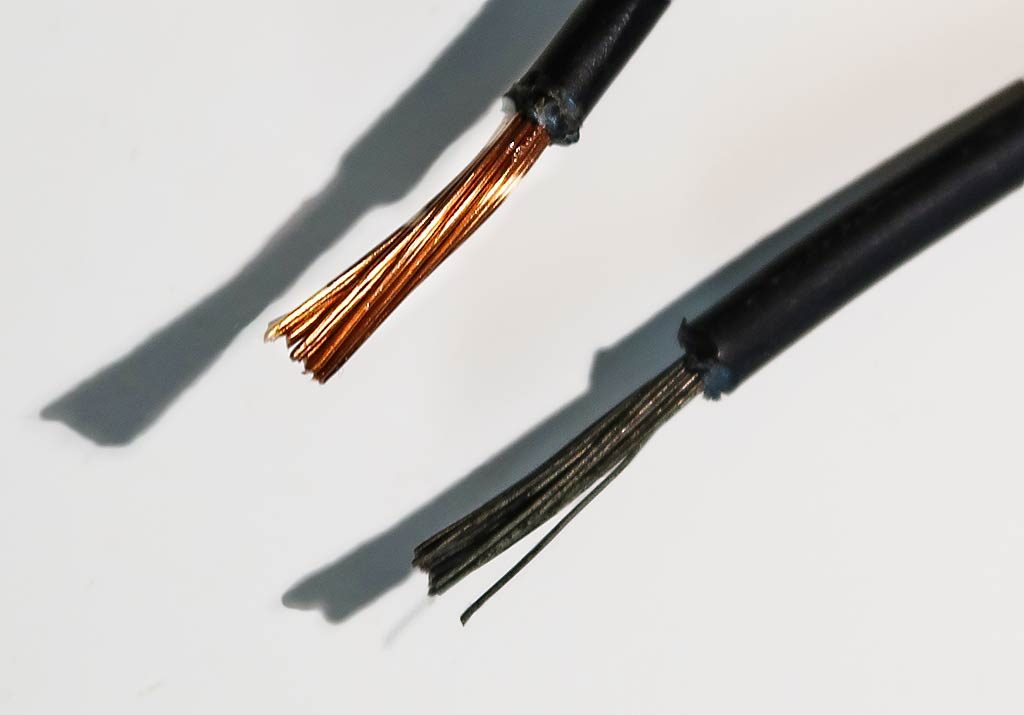Untinned boat wires are more susceptible to corrosion than tinned wires, which can lead to several fire hazards:
- Increased resistance: Corrosion creates a buildup of rust and other oxides on the wire's surface, increasing its electrical resistance. This resistance causes the wire to heat up as it carries current, which can eventually lead to overheating and ignition.
- Arcing and sparking: As the corrosion weakens the wire, it becomes more prone to developing cracks and breaks. These cracks can cause arcing and sparking, especially when the wire is under load or if it comes into contact with other conductive materials like water. Arcs and sparks can ignite nearby flammable materials, such as fuel lines, insulation, and upholstery.
- Loose connections: Corrosion can also loosen the connection between the wire and its terminals. This loose connection creates a high resistance point, similar to what happens with corrosion on the wire itself, and can lead to overheating and arcing.
In addition to these fire hazards, corroded wires can also lead to other electrical problems, such as voltage drops, malfunctioning equipment, and complete loss of power.
Here are some tips to prevent corrosion in boat wires:
- Use tinned marine-grade wires whenever possible.
- Inspect your boat's wiring regularly for signs of corrosion, such as discoloration, green buildup, or cracks.
- Apply a protective coating to your wires, such as heat shrink tubing or liquid electrical tape.
- Keep your boat's bilge dry and well-ventilated to prevent moisture buildup.
- Address any leaks promptly to prevent saltwater from coming into contact with the wiring.


